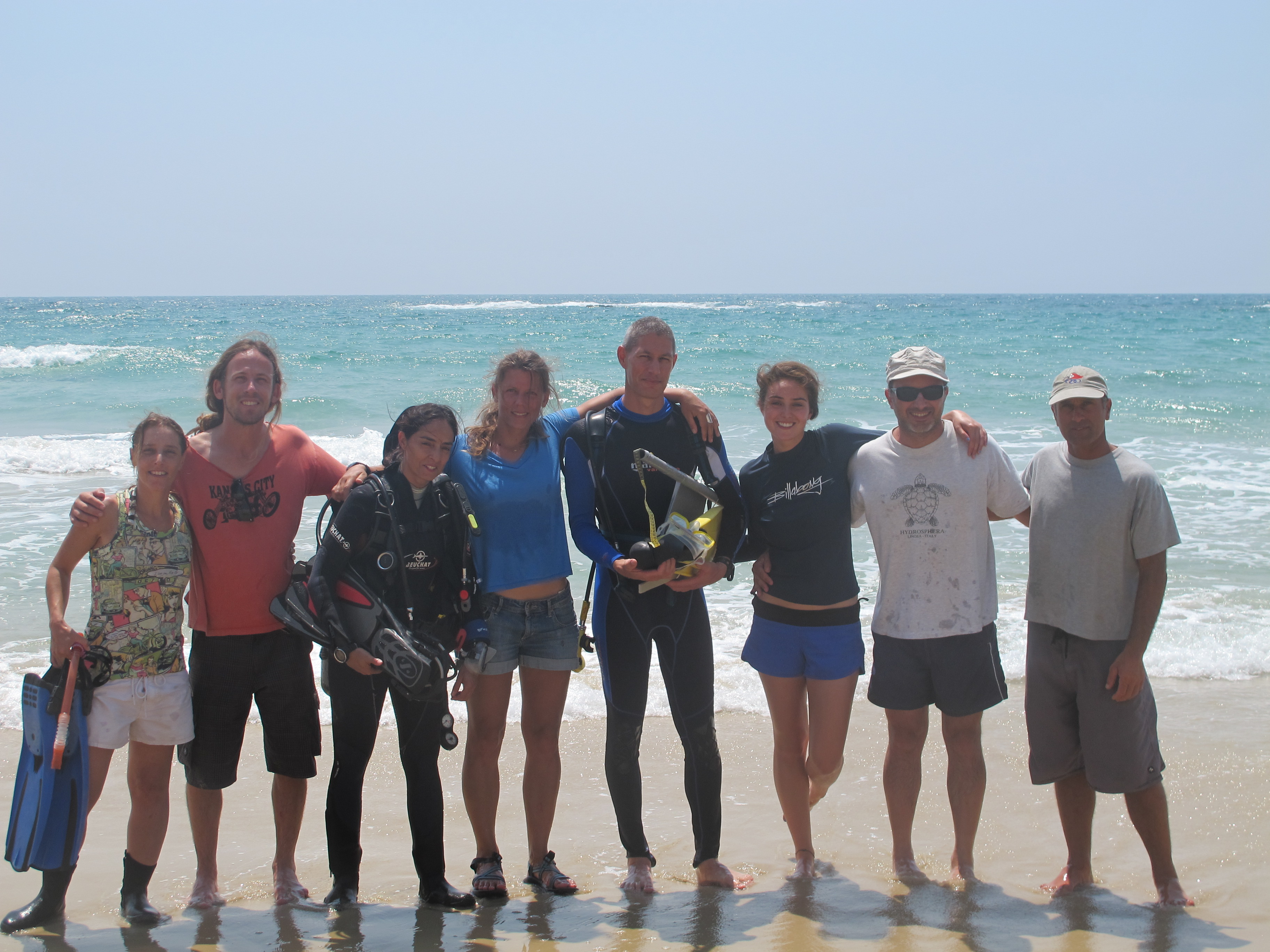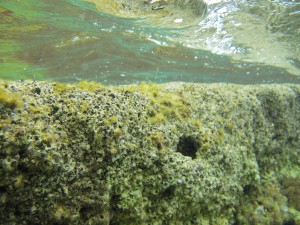A MedSeA team of Israeli and Italian scientists concluded a survey of vermetid reefs along the Mediterranean coast of Israel that took place form the 6th to the 10th of July. Vermetid reefs are considered hot spots of biodiversity in the Mediterranean Sea. These reefs are b uilt by two species of sessile snails cemented by calcareous red algae, serving as ecosystem engineering species, for a rich community of invertebrates and fish. Furthermore, these reefs have an important role in protecting the shoreline from physical erosion.
uilt by two species of sessile snails cemented by calcareous red algae, serving as ecosystem engineering species, for a rich community of invertebrates and fish. Furthermore, these reefs have an important role in protecting the shoreline from physical erosion.
The team inspected the abundance of the engineering species in 10 sites along 150 km of the Israeli coast, finding that the primary builder of the reef margins, the gastropod Dendropoma petraeum, has recently got extinct, while its associated calcareous algae Neogoniolithon brassica-florida flourishes, taking up the space previously occupied by the snails.
“There is only slim chances for Dendropoma recruitment from adjacent healthy reefs” says Dr. Marco Milazzo from the University of Palermo, “since these snails brood their young and the hatchlings crawl only a short distance before becoming a sessile individual”. This raises concern as to the future of vermetid reefs. 
While the reason for the recent extinction of the rim builder snail along the Israeli coast remains enigmatic, the MedSeA researchers are experimentally examining the response of the snails and the calcareous algae to climate warming and ocean acidification, which may act in concert with other anthropogenic stressors to detrimentally affect these important builders. “The knowledge gained from this expedition may be used to better predict the resilience of these calcifying species in other sectors of the Mediterranean basin, where they still build up healthy reefs” concludes Dr. Maoz Fine from Bar Ilan University.










